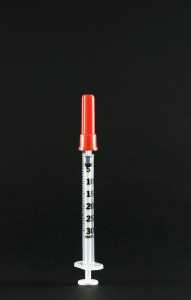Thinking About Getting an Allergy Shot
At Allergy & Clinical Immunology Associates, we are proud to be the leading clinic for allergy shots in the Pittsburgh area. Allergy immunotherapy is the medical term for allergy shots. Our physicians are specialized experts in allergy & immunotherapy. A thorough history of a patient’s symptoms and triggers, a physical exam, and special testing help our physicians determine if airborne allergens are the cause of the symptoms. Sometimes, our physicians may determine that a patient will benefit from allergen immunotherapy. Key factors that are taken into consideration when making this decision include how long a patient experiences allergy symptoms each year, the severity of the symptoms, and how well other treatments are controlling them. Patients with perennial or prolonged allergies or patients needing multiple medications are generally good candidates. A patient’s age and health are also taken into consideration.
How does Allergy Immunotherapy Work?
Allergy immunotherapy works much like a vaccine. The body responds to injected amounts of a particular allergen, given in gradually increasing doses, by developing immunity or tolerance to it. Allergy shots can lead to decreased, minimal, or no allergy symptoms. Your allergy physician determines the right starting dose and ending dose for your allergy immunotherapy. It is important to keep in mind that this type of treatment involves continuous shots to achieve maximum benefits. You can contact Allergy & Clinical Associates today to learn more about immunotherapy dosing and treatment.
Duration of Treatment
There are two phases to allergy immunotherapy. A build-up phase and a maintenance phase. The build-up phase involves receiving injections with increasing amounts of the allergens. Build-up phase may range from approximately 3 to 6 months, or sometimes even longer. The allergy shots are generally given 1 to 2 times a week in the build-up phase. Eventually, the allergens in a patient’s extracts will reach a maximum strength, and at that point, the patient will begin the maintenance phase of allergy immunotherapy. Once the maintenance phase has been reached, the frequency with which the patient needs to receive injections is decreased. Typically, the patient will need to receive their allergy shots every 2 to 4 weeks. This determination will be made by the patient’s physician. Generally, allergy immunotherapy is continued for 3 to 5 years.
Results
Results can vary greatly, but most patients have great success with allergy immunotherapy. Currently, allergy immunotherapy is the only treatment that has the potential to provide long-term prevention of allergy symptoms. Allergy shots may have a lasting effect after they are stopped. Medications cannot do the same. At Allergy & Clinical Immunology Associates, we take pride in providing our patients with the best treatment possible to achieve the most effective results. Our experienced allergy physicians are ready to help you. To learn whether allergy shots are a good option for you, get in touch with us today!
